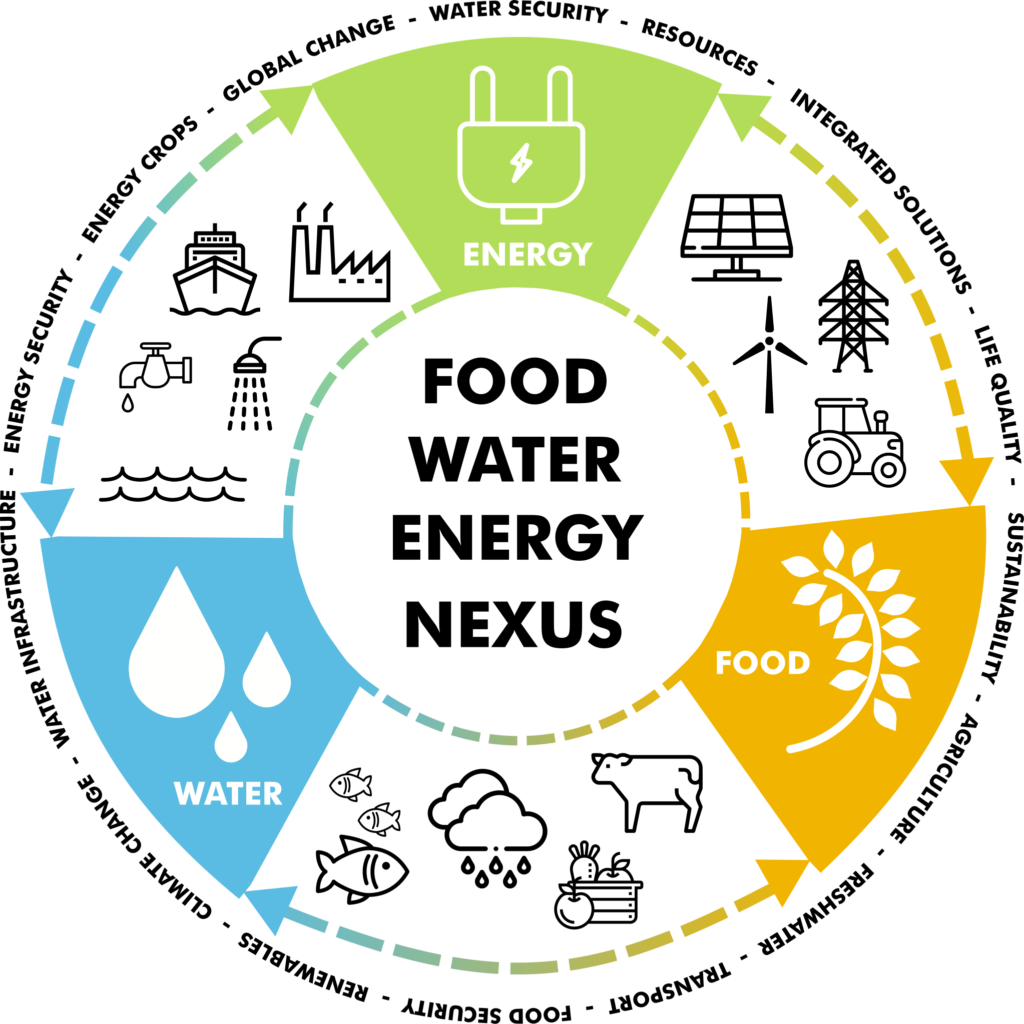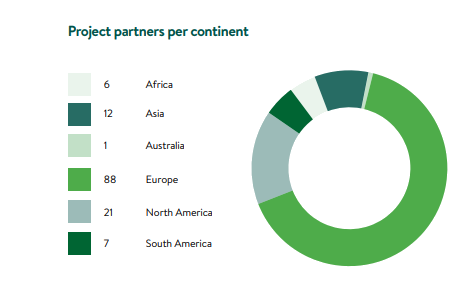Food-Water-Energy nexus (FWE-nexus)
Food, Water and Energy are elements that are inevitably linked with each other. Impacts on one part might also cause changes in the other ones. The rising global population, energy demands, freshwater resources and food supply underline the importance of this topic. To provide a sustainable development on a global scale, solutions concerning food, water and energy challenges have to be created and established (FAO, 2018) .
By using a nexus approach it is easier to identify the impacts, trade-offs, synergies and to understand the interconnection of the different sectors. The FWE-nexus tries to enable a holistic point of view, where the needs of people according to social and economic necessities and the envirnoment are considered (FAO, 2014).

Ressar, 2018, with *CC BY icons made by:
Freepik, Iconixar, Smashicons, Monkik, Eucalyp, www.flaticon.com.
Food-Water-Energy nexus (FWE-nexus)
For the GLOCULL project and its Living Labs the nexus‘ function is three-fold:
1. The GLOCULL Living Labs cover a broad spectrum of sustainability challenges. At first sight, some of these Living Labs may strongly focus on either food, water or energy issues. However, as all Living Labs are situated in real-world systems and address real-world problems, their topical focus is not limited to one specific domain. The FWE nexus provides topical guidance for the integration of the Living Labs and the cross-case evaluation of outputs and outcomes.
2. The focus on the FWE Nexus furthermore highlights the strong acknowledgement of complex interlinkages and interactions of these systems both locally and globally, and as such provides a further perspective for reflection of the Living Labs that is still widely lacking in sustainability research (cf. Lang et al. 2017).
3. Estimations foresee global increases in demand for food (35%), water (40%) and energy (50%) by 2030 (NIC, 2012). These trends call for innovations that connect food, water and energy systems in a sustainable way. To develop these innovations, more knowledge on the few-
nexus is needed to evaluate the impacts of innovations on local FWE systems and to evaluate local to global interactions in fwe-systems (both synergies and trade-offs).
Sustainable Urbanisation Global Initiative (SUGI)
The Sustainable Urbanisation Global Initiative (SUGI)/Food-Water-Energy Nexus is a call jointly established by the Belmont Forum and the Joint Programming Initiative Urban Europe. The cooperation was established in order to bring together the fragmented research and expertise across the globe to find innovative new solutions to the Food-Water-Energy Nexus challenge. For more detailed info, please click here.

